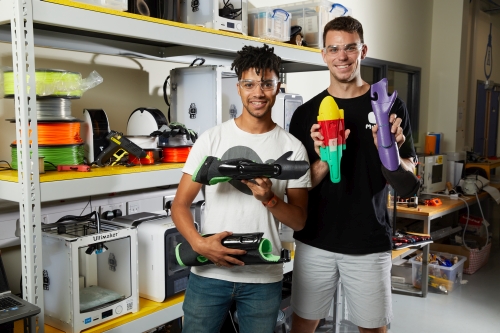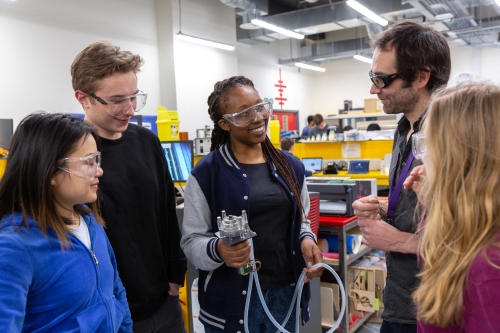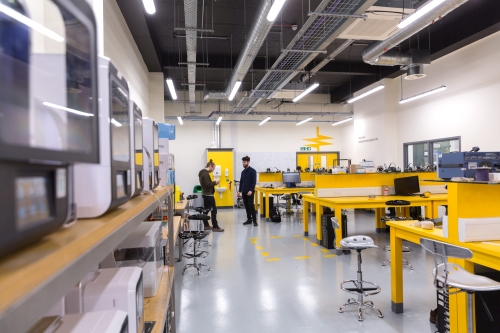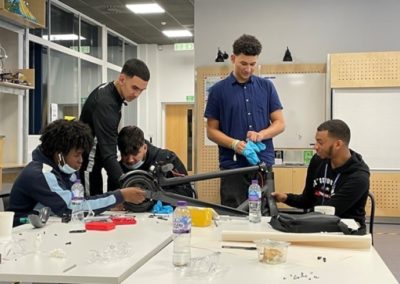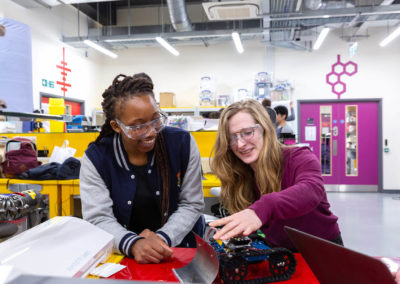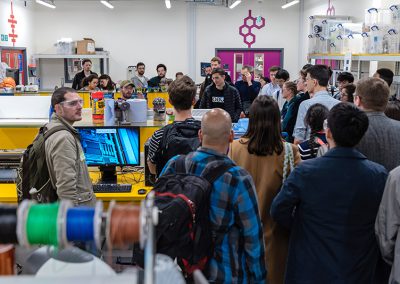Building your own lab equipment at ‘Hack Medicine’

By Hakan Bagci
Some of the research questions that scientists are trying to answer today cannot be answered by one field alone. Scientific research is becoming more and more interdisciplinary with more collaborations between different fields, such as biology and physics, or medicine and engineering, being formed. Scientists are sharing their expertise, their knowledge & their tools, but sometimes, due to the intricate problems researchers are trying to solve, those tools aren’t fit for the job, or might not even exist at all. There is an ever-increasing need for scientists to find alternative ways to get the equipment they need for their research, which includes building your own from scratch.
Earlier this year between June & July, one of our post-docs, Hakan Bagci, attended the Hack Medicine course hosted by Advanced Hackspace at Imperial College London, which was designed specifically to support researchers in biological sciences find solutions to these problems. We asked Hakan to share more about his experience on the course and what he learnt.

A few years ago, I had the opportunity to work with microfluidic systems, used for manipulation of very small volumes of liquid in networks of micro-scale channels, that were thinner than human hair. Such systems enable scientists to scale multiple laboratory processes down onto a single chip that can be as small as a coin, known as “Lab-on-a-Chip” devices. An essential component of the system I used, was a syringe pump that controlled the flow of fluids into the microchannels at a programmable rate. However, as with any other tool we use in laboratories, syringe pumps can be expensive. Wouldn’t it be great to be able to “DIY” such relatively simple instruments at a considerably lower cost, and to build them in such a way that they perfectly match our specific needs? Luckily, with that in mind, in 2014 Imperial College Advanced Hackspace was established in White City by the College, to “help transform the ideation and prototyping landscape for students and staff”. To find out more about the space and the facilities, I recently attended their 12-hour-long “Hack Medicine” course over six weeks to design and build a syringe pump, from scratch. And it was a success!
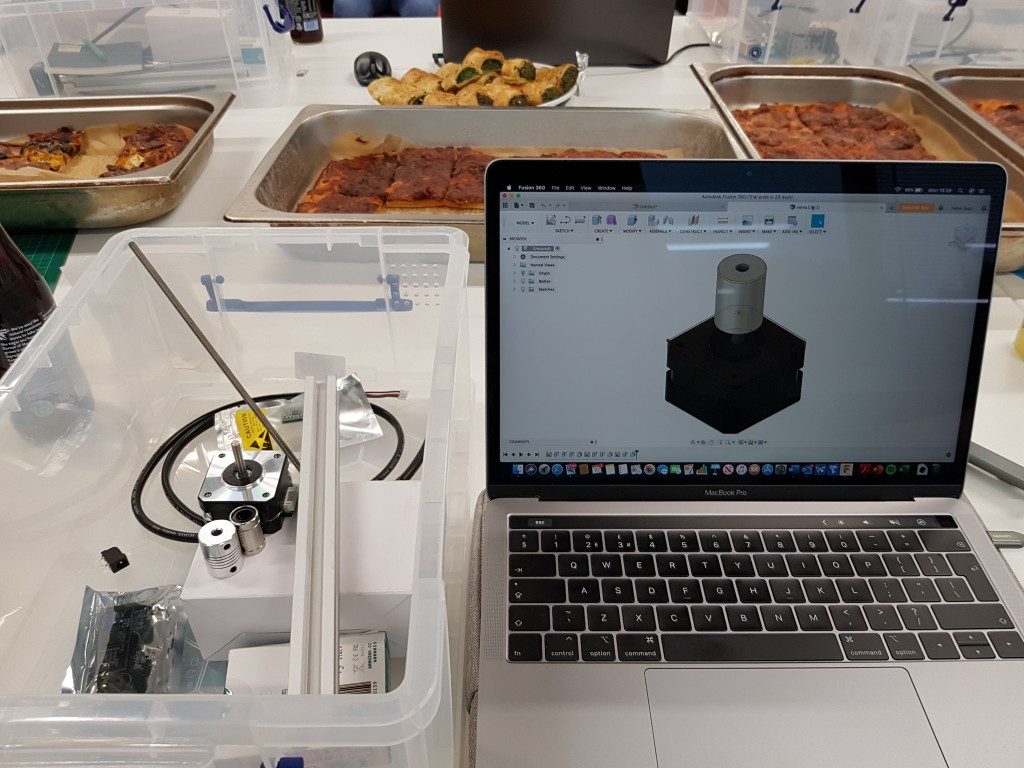
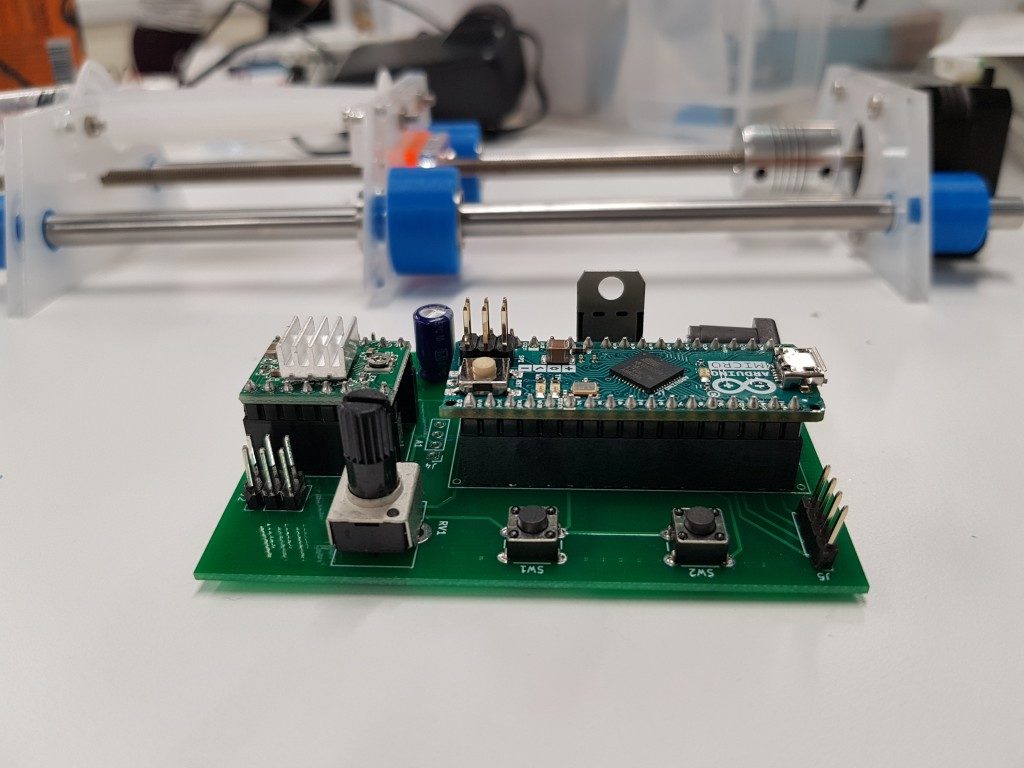
I had no prior knowledge of Computer Aided Design, 3D printing, laser cutting, programming or hardware interfacing, all of which were introduced to us over drinks and pizza under the supervision of Dr David Miller; a Hackspace Fellow and biochemist. The course started with the digital design of pump’s support elements, followed by the use of laser cutting and 3D printing instruments, which are freely available at the space, to manufacture the hardware components. Upon mounting all the elements, we continued with learning basic coding and familiarising ourselves with hardware and software programming platforms. The next step was to do some soldering and build the circuit board, in order to connect the programmed microcontroller, power input and the LED screen with the pump. After some optimisation of the code, and the hardware itself, the DIY syringe pump was ready and, more importantly, functional.
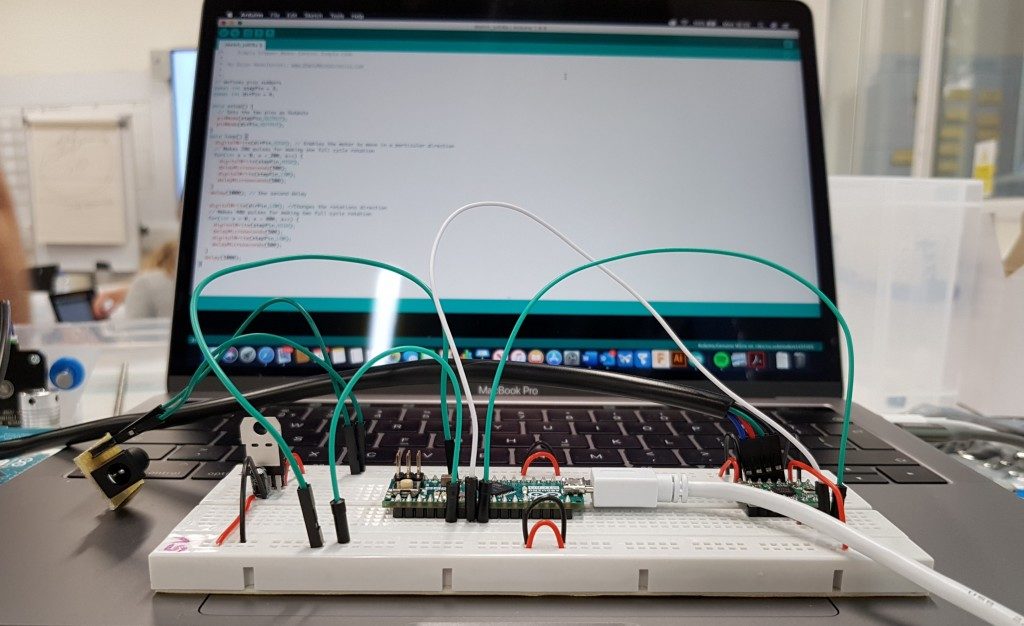
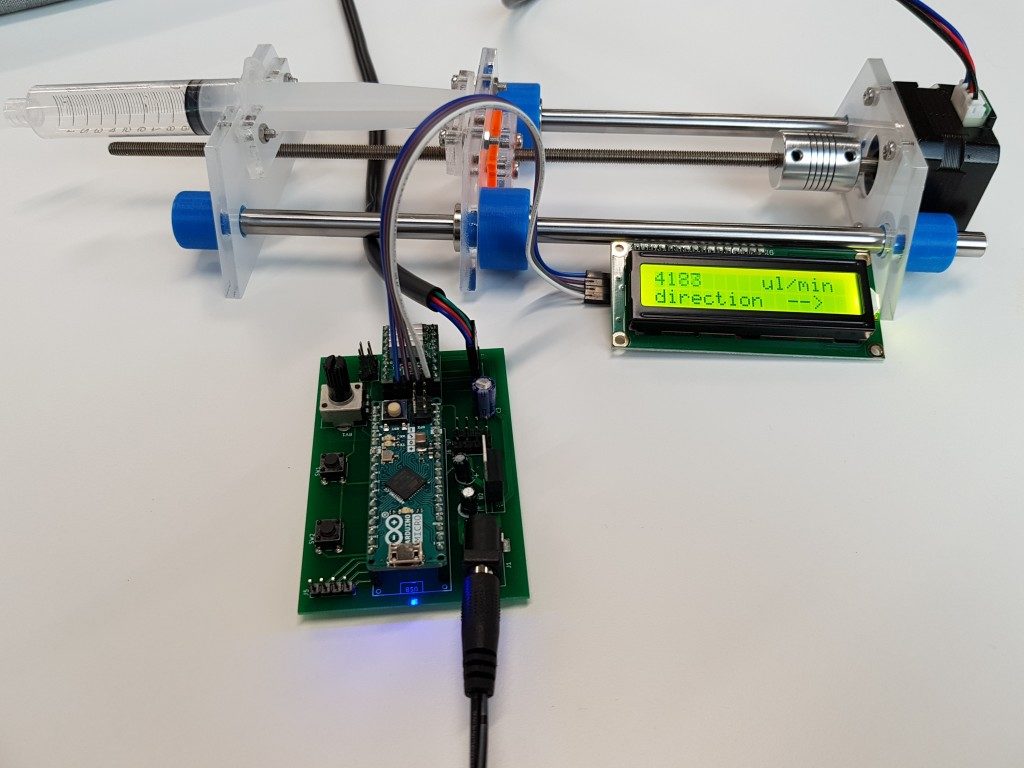
The course was well designed, entertaining, and very instructive (with minimal homework assignments), and there was always time to engage in conversations with participants from across Imperial College London. Although it is unlikely I will use the syringe pump in my current research, the course allowed me to appreciate the space, tools, knowledge and the expertise the Hackspace is providing to Imperial staff and students.
Over the past years the space has built an important community of “like-minded makers and experimenters” across the College, and they are ready to help anyone who aims to realise their ideas, whether it is for their own research, or their start-ups to push forward innovation.
“As a biochemist working at the hackspace, it was apparent we were underrepresented in the biological and medical research community despite there being a significant interest in hardware prototyping for research. The idea of hardware prototyping seemed to be intimidating and a barrier to entry, but we wanted to remove this barrier. This is why HackMedicine was created – to provide a course that would teach the basic skills to rapidly prototype hardware, electronics and software, but more importantly show members how to start and where to find further information. We decided on a syringe pump, not only because it covers all of the techniques required, but also to show how basic lab hardware items can be created to inspire Imperial researchers.”
If you want to learn more about Hackspace itself and activities, check their website. The good news is that the space will soon organise another round of the Hack Medicine course and additional courses that will expand upon the techniques, so be sure to follow their events. Also, if you want to know more, feel free to contact me at [email protected].
You can also follow more updates from Hakan via Twitter.
